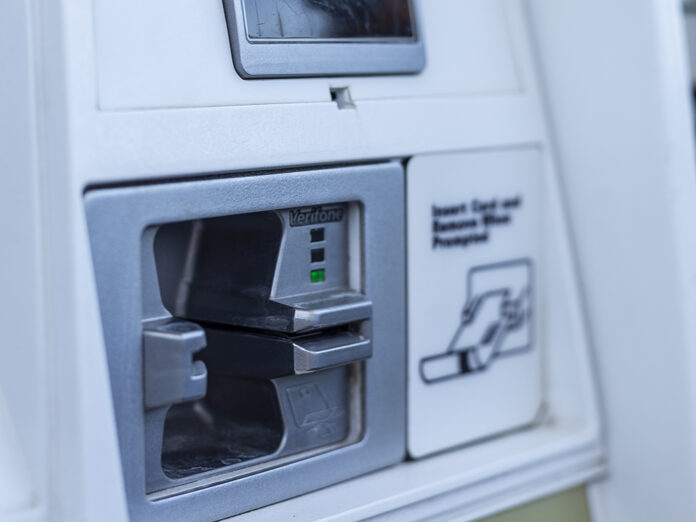
Experts from the Arizona Attorney General’s Office and the state Weights & Measures Services Division recommend the following tips to avoid becoming a victim of skimming at the gas pump:
RELATED STORY: Skimmers victimize Maricopans
- Always use credit cards to pay for gas at the pump. If you have to use an ATM card, run it as credit. If possible, make fuel purchases with cash instead of a credit or debit card.
- Wiggle the card scanner before you insert your card. If it is loose, move on (this tip also applies to ATMs).
- Fill up at stations that have updated security features, such as unique keys for each pump and tamper protections that physically shut down a pump if the machine is improperly accessed.
- Ask site employees about their measures to protect against skimmers (e.g. does the station check for skimmers daily, have alarm systems installed in dispensers, etc.).
- Some gas stations place security tags/tabs on the pump showing that it is secure. If the tag/tab is broken, move on. Also, look for pry marks on the gas pump door or if the door is slightly open.
- Use pumps in well-lit areas that are positioned in a clear view of store employees. Devices are typically placed into the pumps furthest away from the attendant.
- Watch out for large vehicles – SUVs, trucks and vans – parked in front of fuel dispensers for long periods of time. Criminals may use large vehicles to block attendants’ view while they install a device.
- Look for people using electronic devices (computers or tablets) as they sit in vehicles near a gas pump. Some skimmers use Bluetooth technology to download information from a device when they are in range of the wireless signal.
- If anything raises a red flag, pay inside or go to a different gas station. Report your concerns to station employees and law enforcement.
- Monitor your credit card and bank statements to look for any unauthorized or fraudulent charges.
IF YOU BECOME A SKIMMING VICTIM
- If your credit, ATM or debit card is lost or stolen, federal law limits your liability for unauthorized charges. Your protection against unauthorized charges depends on the type of card — and when you report the loss, according to the Federal Trade Commission.
- Acting fast limits your liability for charges you didn’t authorize. Report the loss or theft of your card to the card issuer ASAP. Once you report, federal law says you cannot be held liable for unauthorized transfers that occur after that time.
- Under the Fair Credit Billing Act, your liability for unauthorized use of your credit card tops out at $50. But if you report the loss before your credit card is used, the law says you are not responsible for any charges you didn’t authorize. If your credit card number is stolen, but not the card, you are not liable for unauthorized use.


![Maricopa’s ‘TikTok Rizz Party,’ explained One of several flyers for a "TikTok rizz party" is taped to a door in the Maricopa Business Center along Honeycutt Road on April 23, 2024. [Monica D. Spencer]](https://www.inmaricopa.com/wp-content/uploads/2024/04/spencer-042324-tiktok-rizz-party-flyer-web-218x150.jpg)



![Locals find zen with Earth Day drum circle Lizz Fiedorczyk instructs a drum circle at Maricopa Community Center April 22, 2024. [Brian Petersheim Jr.]](https://www.inmaricopa.com/wp-content/uploads/2024/04/PJ_3922-Enhanced-NR-218x150.jpg)


![Shred-A-Thon to take place tomorrow An image of shredded paper. [Pixabay]](https://www.inmaricopa.com/wp-content/uploads/2024/03/shredded-paper-168650_1280-218x150.jpg)


![Alleged car thief released without charges Phoenix police stop a stolen vehicle on April 20, 2024. [Facebook]](https://www.inmaricopa.com/wp-content/uploads/2024/04/IMG_5040-218x150.jpg)



![City gave new manager big low-interest home loan City Manager Ben Bitter speaks during a Chamber of Commerce event at Global Water Resources on April 11, 2024. Bitter discussed the current state of economic development in Maricopa, as well as hinting at lowering property tax rates again. [Monica D. Spencer]](https://www.inmaricopa.com/wp-content/uploads/2024/04/spencer-041124-ben-bitter-chamber-property-taxes-web-100x70.jpg)